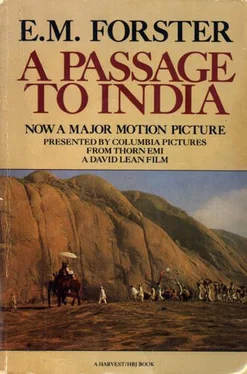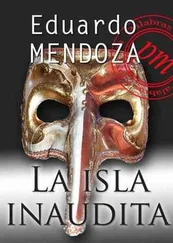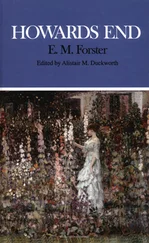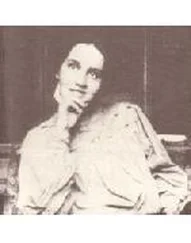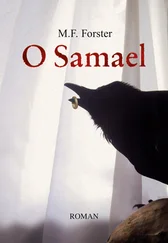Edward Forster - A Passage to India
Здесь есть возможность читать онлайн «Edward Forster - A Passage to India» весь текст электронной книги совершенно бесплатно (целиком полную версию без сокращений). В некоторых случаях можно слушать аудио, скачать через торрент в формате fb2 и присутствует краткое содержание. Город: San Diego, California, ISBN: , Издательство: Harcourt, Brace & World, Inc., Жанр: Классическая проза, на английском языке. Описание произведения, (предисловие) а так же отзывы посетителей доступны на портале библиотеки ЛибКат.
- Название:A Passage to India
- Автор:
- Издательство:Harcourt, Brace & World, Inc.
- Жанр:
- Год:неизвестен
- Город:San Diego, California
- ISBN:0-15-671142-7
- Рейтинг книги:5 / 5. Голосов: 1
-
Избранное:Добавить в избранное
- Отзывы:
-
Ваша оценка:
- 100
- 1
- 2
- 3
- 4
- 5
A Passage to India: краткое содержание, описание и аннотация
Предлагаем к чтению аннотацию, описание, краткое содержание или предисловие (зависит от того, что написал сам автор книги «A Passage to India»). Если вы не нашли необходимую информацию о книге — напишите в комментариях, мы постараемся отыскать её.
A Passage to India — читать онлайн бесплатно полную книгу (весь текст) целиком
Ниже представлен текст книги, разбитый по страницам. Система сохранения места последней прочитанной страницы, позволяет с удобством читать онлайн бесплатно книгу «A Passage to India», без необходимости каждый раз заново искать на чём Вы остановились. Поставьте закладку, и сможете в любой момент перейти на страницу, на которой закончили чтение.
Интервал:
Закладка:
When they took their leave, Mrs. Moore had an impulse, and said to Mrs. Bhattacharya, whose face she liked, "I wonder whether you would allow us to call on you some day."
"When?" she replied, inclining charmingly.
"Whenever is convenient."
"All days are convenient."
"Thursday…"
"Most certainly."
"We shall enjoy it greatly, it would be a real pleasure. What about the time?"
"All hours."
"Tell us which you would prefer. We're quite strangers to your country; we don't know when you have visitors," said Miss Quested.
Mrs. Bhattacharya seemed not to know either. Her gesture implied that she had known, since Thursdays began, that English ladies would come to see her on one of them, and so always stayed in. Everything pleased her, nothing surprised. She added, "We leave for Calcutta to-day."
"Oh, do you?" said Adela, not at first seeing the implication. Then she cried, "Oh, but if you do we shall find you gone."
Mrs. Bhattacharya did not dispute it. But her husband called from the distance, "Yes, yes, you come to us Thursday."
"But you'll be in Calcutta."
"No, no, we shall not." He said something swiftly to his wife in Bengali. "We expect you Thursday."
"Thursday…" the woman echoed.
"You can't have done such a dreadful thing as to put off going for our sake?" exclaimed Mrs. Moore.
"No, of course not, we are not such people." He was laughing.
"I believe that you have. Oh, please—it distresses me beyond words."
Everyone was laughing now, but with no suggestion that they had blundered. A shapeless discussion occurred, during which Mrs. Turton retired, smiling to herself. The upshot was that they were to come Thursday, but early in the morning, so as to wreck the Bhattacharya plans as little as possible, and Mr. Bhattacharya would send his carriage to fetch them, with servants to point out the way. Did he know where they lived? Yes, of course he knew, he knew everything; and he laughed again. They left among a flutter of compliments and smiles, and three ladies, who had hitherto taken no part in the reception, suddenly shot out of the summer-house like exquisitely coloured swallows, and salaamed them.
Meanwhile the Collector had been going his rounds. He made pleasant remarks and a few jokes, which were applauded lustily, but he knew something to the discredit of nearly every one of his guests, and was consequently perfunctory. When they had not cheated, it was bhang, women, or worse, and even the desirables wanted to get something out of him. He believed that a "Bridge Party" did good rather than harm, or he would not have given one, but he was under no illusions, and at the proper moment he retired to the English side of the lawn. The impressions he left behind him were various. Many of the guests, especially the humbler and less Anglicized, were genuinely grateful. To be addressed by so high an official was a permanent asset. They did not mind how long they stood, or how little happened, and when seven o'clock struck, they had to be turned out. Others were grateful with more intelligence. The Nawab Bahadur, indifferent for himself and for the distinction with which he was greeted, was moved by the mere kindness that must have prompted the invitation. He knew the difficulties. Hamidullah also thought that the Collector had played up well. But others, such as Mahmoud Ali, were cynical; they were firmly convinced that Turton had been made to give the party by his official superiors and was all the time consumed with impotent rage, and they infected some who were inclined to a healthier view. Yet even Mahmoud Ali was glad he had come. Shrines are fascinating, especially when rarely opened, and it amused him to note the ritual of the English club, and to caricature it afterwards to his friends.
After Mr. Turton, the official who did his duty best was Mr. Fielding, the Principal of the little Government College. He knew little of the district and less against the inhabitants, so he was in a less cynical state of mind. Athletic and cheerful, he romped about, making numerous mistakes which the parents of his pupils tried to cover up, for he was popular among them. When the moment for refreshments came, he did not move back to the English side, but burnt his mouth with gram. He talked to anyone and he ate anything. Amid much that was alien, he learnt that the two new ladies from England had been a great success, and that their politeness in wishing to be Mrs. Bhattacharya's guests had pleased not only her but all Indians who heard of it. It pleased Mr. Fielding also. He scarcely knew the two new ladies, still he decided to tell them what pleasure they had given by their friendliness.
He found the younger of them alone. She was looking through a nick in the cactus hedge at the distant Marabar Hills, which had crept near, as was their custom at sunset; if the sunset had lasted long enough, they would have reached the town, but it was swift, being tropical. He gave her his information, and she was so much pleased and thanked him so heartily that he asked her and the other lady to tea.
"I'd like to come very much indeed, and so would Mrs. Moore, I know."
"I'm rather a hermit, you know."
"Much the best thing to be in this place."
"Owing to my work and so on, I don't get up much to the club."
"I know, I know, and we never get down from it. I envy you being with Indians."
"Do you care to meet one or two?"
"Very, very much indeed; it's what I long for. This party to-day makes me so angry and miserable. I think my countrymen out here must be mad. Fancy inviting guests and not treating them properly! You and Mr. Turton and perhaps Mr. McBryde are the only people who showed any common politeness. The rest make me perfectly ashamed, and it's got worse and worse."
It had. The Englishmen had intended to play up better, but had been prevented from doing so by their women folk, whom they had to attend, provide with tea, advise about dogs, etc. When tennis began, the barrier grew impenetrable. It had been hoped to have some sets between East and West, but this was forgotten, and the courts were monopolized by the usual club couples. Fielding resented it too, but did not say so to the girl, for he found something theoretical in her outburst. Did she care about Indian music? he enquired; there was an old professor down at the College, who sang.
"Oh, just what we wanted to hear. And do you know Doctor Aziz?"
"I know all about him. I don't know him. Would you like him asked too?"
"Mrs. Moore says he is so nice."
"Very well, Miss Quested. Will Thursday suit you?"
"Indeed it will, and that morning we go to this Indian lady's. All the nice things are coming Thursday."
"I won't ask the City Magistrate to bring you. I know he'll be busy at that time."
"Yes, Ronny is always hard-worked," she replied, contemplating the hills. How lovely they suddenly were! But she couldn't touch them. In front, like a shutter, fell a vision of her married life. She and Ronny would look into the club like this every evening, then drive home to dress; they would see the Lesleys and the Callendars and the Turtons and the Burtons, and invite them and be invited by them, while the true India slid by unnoticed. Colour would remain—the pageant of birds in the early morning, brown bodies, white turbans, idols whose flesh was scarlet or blue—and movement would remain as long as there were crowds in the bazaar and bathers in the tanks. Perched up on the seat of a dogcart, she would see them. But the force that lies behind colour and movement would escape her even more effectually than it did now. She would see India always as a frieze, never as a spirit, and she assumed that it was a spirit o'f which Mrs. Moore had had a glimpse.
And sure enough they did drive away from the club in a few minutes, and they did dress, and to dinner came Miss Derek and the McBrydes, and the menu was: Julienne soup full of bullety bottled peas, pseudo-cottage bread, fish full of branching bones, pretending to be plaice, more bottled peas with the cutlets, trifle, sardines on toast: the menu of Anglo-India. A dish might be added or subtracted as one rose or fell in the official scale, the peas might rattle less or more, the sardines and the vermouth be imported by a different firm, but the tradition remained; the food of exiles, cooked by servants who did not understand it. Adela thought of the young men and women who had come out before her, P. & O. full after P. & O. full, and had been set down to the same food and the same ideas, and been snubbed in the same good-humoured way until they kept to the accredited themes and began to snub others. "I should never get like that," she thought, for she was young herself; all the same she knew that she had come up against something that was both insidious and tough, and against which she needed allies. She must gather around her at Chandrapore a few people who felt as she did, and she was glad to have met Mr. Fielding and the Indian lady with the unpronounceable name. Here at all events was a nucleus; she should know much better where she stood in the course of the next two days.
Читать дальшеИнтервал:
Закладка:
Похожие книги на «A Passage to India»
Представляем Вашему вниманию похожие книги на «A Passage to India» списком для выбора. Мы отобрали схожую по названию и смыслу литературу в надежде предоставить читателям больше вариантов отыскать новые, интересные, ещё непрочитанные произведения.
Обсуждение, отзывы о книге «A Passage to India» и просто собственные мнения читателей. Оставьте ваши комментарии, напишите, что Вы думаете о произведении, его смысле или главных героях. Укажите что конкретно понравилось, а что нет, и почему Вы так считаете.
